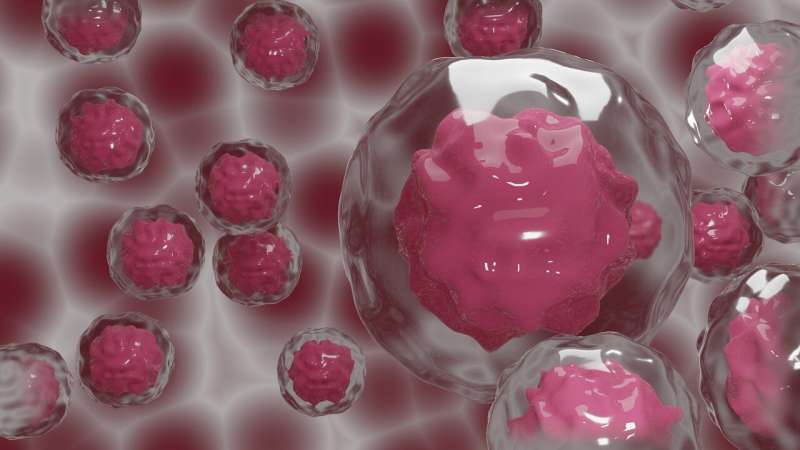This article has been reviewed according to Science X's editorial process and policies. Editors have highlighted the following attributes while ensuring the content's credibility:
fact-checked
trusted source
proofread
Researchers use AI to personalize cancer patient treatments

Researchers at the University of Sussex are using Artificial Intelligence (AI) technology to analyze different types of cancer cells to understand different gene dependencies, and to identify genes that are critical to a cell's survival. Sussex researchers have done this by developing a prediction algorithm that works out which genes are essential in the cell, by analyzing the genetic changes in the tumor. This can be used to identify actionable targets that in time could guide oncologists to personalize cancer patient treatments.
Dr. Frances Pearl, Senior Lecturer in Bioinformatics in the School of Life Sciences at the University of Sussex says, "Our vision is to take advantage of the decreasing cost of DNA sequencing and to harness the power of AI to understand cancer cell differences and what they mean for the individual patient's treatment. Through our research, we were able to identify cell-specific gene dependencies using only the DNA sequence and RNA levels in that cell, which are easily and cheaply obtainable from tumor biopsy samples.
"This is an incredibly exciting step in our research which means that we can now work to improve the technology so that it can be offered to oncologists and help in the treatment pathways for their patients."
Cancer treatments are primarily prescribed on the basis of the location and type of cancer. Genetic differences in tumors can make standard cancer treatments ineffective. Using a personalized approach to guide treatment could improve life expectancy, quality of life and reduce unnecessary side effects of cancer patients.
In each cell, there are around 20,000 genes that contain the information needed to make proteins. Around 1,000 of those genes are essential, meaning they are required for the cell to survive. When normal cells become cancer cells, oncogenes (that is, those genes with the potential to cause cancer) become activated and tumor suppressor genes become inactivated, causing a rewiring of the cell. This causes the cell to become dependent on a new set of genes to survive, and this can then be exploited to kill the cancer cells.
By using this new technology to target protein products of tumor-specific dependent genes, cancer cells can be killed, leaving the normal cells which are not dependent on these genes relatively unharmed. Although dependencies can be determined using intensive laboratory techniques, it is costly and time consuming and would not be feasible to analyze all tumor samples in this way.
The work is published in the journal Bioinformatics Advances.
More information: Graeme Benstead-Hume et al, Biological network topology features predict gene dependencies in cancer cell-lines, Bioinformatics Advances (2022). DOI: 10.1093/bioadv/vbac084

















